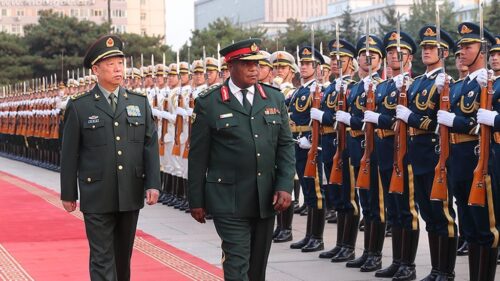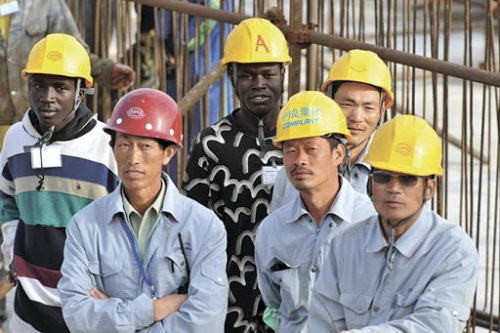Beijing leaves Mugabe out in the cold

After nearly 40 years of close relations between China’s leaders and Robert Mugabe, Beijing was strangely quiet as the drama surrounding the Zimbabwean dictator’s ouster unfolded last month. Writing for the New York Times Magazine (paywall), Brook Larmer looks at how this episode “shows how Beijing is learning to navigate, very carefully, through turbulent transitions in places where it has deep economic ties, sometimes decades old, and how countries bend to the arc of China’s gravity.”
- Despite the ties forged from perceived similarities in China’s and Zimbabwe’s revolutionary pasts, Larmer describes how Beijing became incensed over Mugabe’s recent moves to limit foreign ownership of Zimbabwean companies.
- That, along with concerns over political instability resulting from an uncertain succession, may have led Beijing to at least tacitly approve of Mugabe’s expulsion, which could be “regarded as the first coup d’état carried out with the tacit approval of the 21st century’s emerging superpower.”
- Elsewhere around the world, America’s retreat continues to be played as an opportunity for China’s advance. The South China Morning Post reports on how China will assist Grenada with preparing a national development plan, 34 years after the U.S. invaded the Caribbean nation. And Newsweek considers how Chinese collaboration with Ukraine — a country “at the nexus of a spider’s web of geopolitical interests” — could ultimately pull Kiev closer to Moscow.
-
The surveillance state in Xinjiang
Twelve Days in Xinjiang: How China’s surveillance state overwhelms daily life with video / WSJ (paywall)
“The government has turned the remote region into a laboratory for its high-tech social controls.” See also Associated Press story we linked to yesterday: Digital police state shackles Chinese minority. -
Responding to Trump’s security document
China says Trump’s new security policy shows ‘Cold War mentality’ / CNN
China committed to global peace, development, order: Chinese embassy in Washington / Xinhua -
Tensions in Australia
Chinese diplomats warn students in Australia to stay alert to safety risks after spate of attacks / SCMP -
LGBT — fighting back against prejudice
Alleged homophobic attack rallies Shanghai’s LGBT community / Sixth Tone





